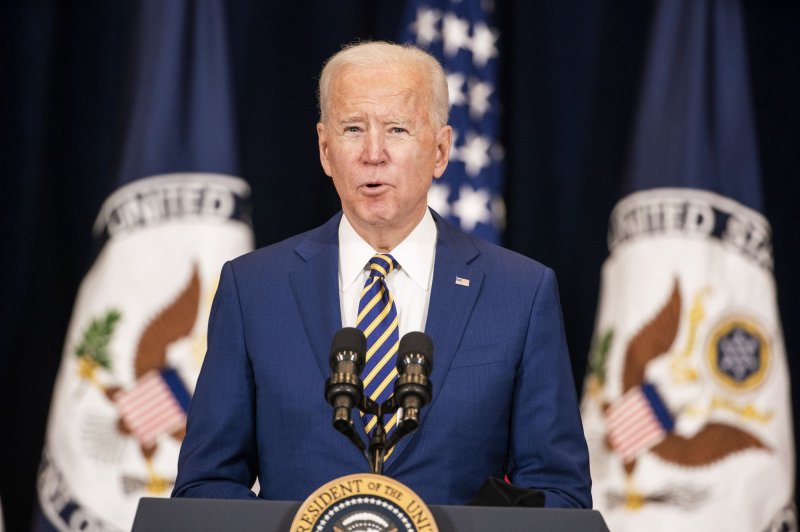
A young mother sits with her daughters at a migrant camp in Tijuana, Mexico, in November 2018. The family fled gang violence in Honduras seeking safety in the United States. File Photo by Patrick Timmons/UPI
Feb. 4 (UPI) -- Justice Department Inspector General Michael Horowitz testified in Congress on Thursday about the Trump administration's hard-line immigration policy, which separated parents and children at the Mexico border.
Horowitz appeared before the House oversight and government reform committee for a hearing, titled "Accountability and Lessons Learned from the Trump Administration's Child Separation Policy."
The department's chief internal watchdog, Horowitz has been critical in reviews of former President Donald Trump's policies, including his "zero tolerance" immigration stance.
Last month, Horowitz said in a report that then-Attorney General Jeff Sessions knew years ago that the administration's position on immigration would break up families.
At Thursday's hearing, he said the departments of Homeland Security and Justice failed to consult with other key officials like U.S. Attorneys in border states, U.S. Marshals or the Health and Human Services Department, which was tasked with caring for the children who'd been separated.
"They should have consulted ... to make sure there was an ability to reunite children after they were separated," Horowitz said, adding that health officials learned of Trump's policy from news media.
Starting in 2017 with a pilot program, federal immigration authorities under Trump separated more than 3,000 children and parents at the border -- a practice that drew outrage nationwide.
"I have put in place a 'zero tolerance' policy for illegal entry on our Southwest border," Sessions said in 2018. "If you cross this border unlawfully, then we will prosecute you. It's that simple.
"If you are smuggling a child, then we will prosecute you and that child will be separated from you as required by law."
Horowitz said Trump's policy expanded prosecutions in immigration cases, even if they involved misdemeanor violations. Before the policy, unlawfully crossing the border without a prior deportation or conviction was a misdemeanor and handled in administrative immigration court.
RELATED Biden signs orders to 'reunify' families at U.S.-Mexico border
Trump's change swamped the courts, detention centers and law enforcement agencies, Horowitz said, which then became overwhelmed by the influx. With no advance warning, U.S. Marshals were told to find jail cells for hundreds of migrants every day, he added.
The family separation policy was rooted partly in a 2015 court ruling that limited the amount of time migrant children could be held.
Democrats on the committee were harsh in their appraisal of the Trump-era policy.
"Unfortunately, the stain of the Trump child separation policy will remain etched on the forehead of America for posterity," said Rep. Hank Johnson, D-Ga., who added that he visited private detention centers in his state that profited from "prolonged misery of asylum seekers."
Some of the panel's Republicans were less critical.
Rep. Jody Hice, R-Ga., blamed the separation policy on a "broken immigration system" and the "catch and release" policy that came before Trump.
"This whole argument about children being separated was a deterrent -- not to legal immigration, but to illegal immigration," Hice said. "Separating the children was part of trying to stop people from coming here illegally."
Border officials ultimately lost track of some parents and many were deported without their children. Hundreds are still missing.
The Trump administration later rescinded the order to separate families in 2018 after a federal judge halted the practice, but advocates said children were still being separated in 2019.
In sweeping executive actions related to immigration this week, President Joe Biden created a task force to reunite migrant parents and their children, ordered reforms for the U.S. asylum and naturalization processes and revoked Trump's "Remain in Mexico" policy that kept refugees out of the country while their applications moved through the cour














